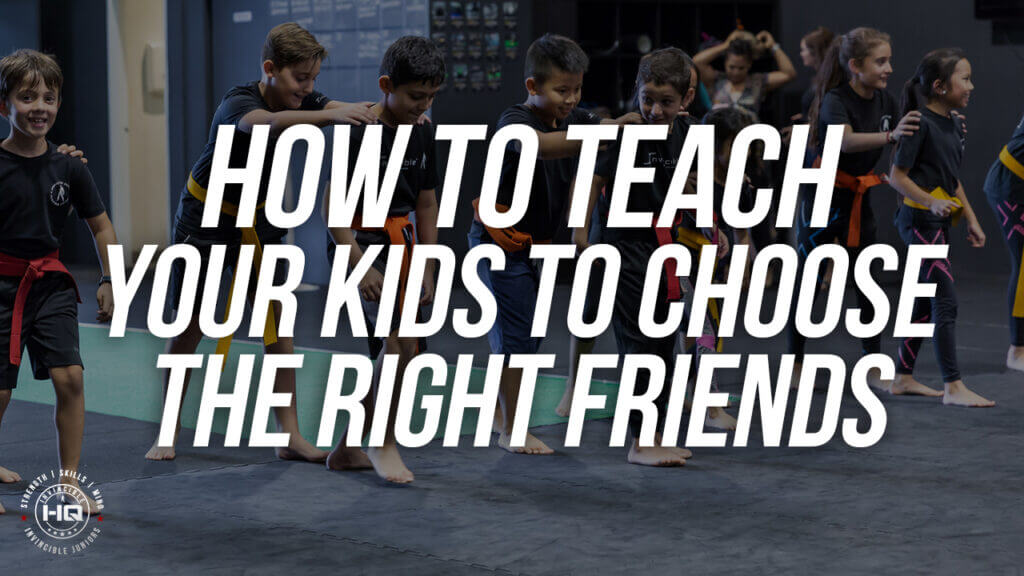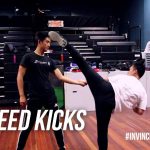
It’s important that our kids have friends who are caring, accepting and kind. Teach your children what being a good friend means so they can be a good friend to others and also find friends who treat them with respect and compassion.
Dealing With Peer Pressure
Peer pressure often starts in early childhood with children trying to get other kids to play the games they want or exclude other children. It can become more serious in the preteen and teen years as smoking, alcohol and drugs become the subject of pressure.
By high school, kids tend to spend more time with their peers and less time with their parents. This often leads kids to look to those peers for opinions, reinforcement and acceptance.
Peer pressure is not always negative. In fact friends often encourage each other to study, try out for sports or to try new interests in the arts. But in these years, kids often experiment in an attempt to find their identity and feel “larger than life.” And this sometimes leads children to take risks that are unsafe and unhealthy.
It is especially hard for your child to turn down his closest friend or the “cool” kids. Do not wait until you see the warning signs that your child is in trouble; deal ahead of time with the inevitable pressure your children will be under by talking to your children.
1. Remind your kid about elevators.
Friends are like elevators, they can take you up or down. This is a good statement to remind your kids often. We all have had those friends who drag you down fast. Sometimes you may not even realize it at first. While you can still have friends who may be a little more difficult, encourage your kids to cultivate strong friendships with those who bring them up.
2. Tell them about Peer Pressure.
You know they’ll be influenced by peer pressure, so tell them before anything happens: “One of your friends is going to tell you it’s cool to: exclude other friends, lie to your parents or smoke.” Encourage them to think of both the short and long-term consequences: “you would not be able to play your favourite sport or you could get cancer if you smoke.”
Show them you are a source of information on this topic. You’ve been there, done that. Offer your opinion, but don’t lecture.
3. Role Play the Words
Practicing peer pressure resistance is important. Finding creative ways to refuse alcohol, tobacco and drugs requires humour and lots of practice. Children, especially younger children, love to pretend. So set a scene as if you and your child were characters in a story. Role-play saying no to things that your child knows are harmful or against the rules, such as playing with matches, stealing a cookie or smoking a cigarette.
Kids are more likely to be offered alcohol, tobacco or other drugs from friends than from strangers. And it’s a lot tougher for kids to say no to their friends. The best way to prepare children to deal with these situations is to prepare them by practicing similar scenarios in advance. When the time comes, your child will know exactly what to say so they can say no and get out of touch situation without losing their friends.
What are good ways to say no when your son or daughter is offered drugs? Simple answers are often best. “No, thanks.” “No way, I don’t do that stuff.” “No, I gotta go.” “No way, we’ve got a big grading next week, I don’t want to risk it.”
4. Always bail them out
Tell them that no matter how awful the circumstances you will always bail them out without punishing them. Let them know that no matter how late it is, or how busy you are, you want to be called to get them out of a situation they know isn’t good.
The Resistance Skills – Techniques For Saying “No!”
Here are some steps that you can practice with your child to make it easier for him or her to refuse harmful behaviours.
1. Ask Questions
Especially if unknown substances are offered. Tell your child to ask “What is it?” and “Where did you get it?” If your child is invited to a friend’s house teach them to ask “Who else is invited?” “Do your parents know you invited me over?” and “Will your parents be there?”
2. Say No!
This seems much simpler than it is and will take some practice. Tell your child: Don’t argue; don’t discuss. Say NO and show that you mean it.
3. Give Reasons
It’s important your child is clear and concise. “No thanks, I don’t want to drink or smoke.” or “Coach says drugs will hurt my game” are ample reasons that youngsters can use. And don’t forget the oldest reason: “My parents will kill me!”
4. Suggest Other Things To Do
If a friend is offering tobacco, alcohol, or other drugs saying NO is difficult. Your child should be prepared to suggest something else to do like play a game or go to a movie. Emphasize that he isn’t rejecting a friend, it is the harmful behavior he’s resisting.
5. Leave
If your child has tried all these steps and is still being confronted with harmful behaviour, it’s important she gets out of the situation immediately. Tell her to come directly home, if she’s at school go directly to class or join another group of friends.
Please make a commitment to apply these steps with your kids. This is a very important issue. And let us know how it goes in the comments below.
We are committed to helping you to prepare your kids for success in training and in life.
About Invincible Worldwide
Invincible Worldwide’s mission is to empower people to be physically, mentally and socially extraordinary. Alan La, founder of Invincible Worldwide is an International Sports Karate Association Hall-of-Famed Martial Artist, Best-Selling Author, Speaker and Young Australian of the Year finalist. Together with his team, they provide world-class physical and mindset training programs, seminars and performances for people all over the world.
More specifically, Alan and his team have developed a unique award-winning Invincible Juniors program which fuses martial arts, acrobatics and leadership skills to empower young kids to be physically and mentally prepared for success in life and in school.
For more information about our unique Invincible Juniors Academy, go to: https://www.invincibleworldwide.com/juniors-program-intro
Or to apply your child for the Invincible Juniors Program, please go to: https://www.invincibleworldwide.com/kids-martial-arts-classes/

















